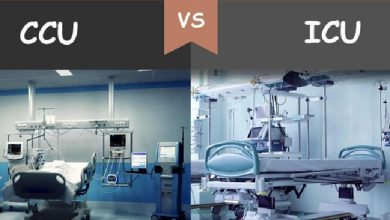ارتباط بین اختلال در عملکرد کبد و تاثیر آن بر قلب

ارتباط بین اختلال در عملکرد کبد و تاثیر آن بر قلب
 پژوهشگران دانشگاه ایالتی آیووا (Iowa State University) آمریکا در مطالعه اخیرشان اعلام کردهاند اختلال در عملکرد کبد ممکن است منجر به آسیب دیدن بافت قلب شود.
پژوهشگران دانشگاه ایالتی آیووا (Iowa State University) آمریکا در مطالعه اخیرشان اعلام کردهاند اختلال در عملکرد کبد ممکن است منجر به آسیب دیدن بافت قلب شود.
محققان آمریکایی طی مطالعه اخیرشان درک جدیدی از ارتباط بین سلامت قلب و بافتهای مختلف بدن پیدا کردهاند که این موضوع میتواند به توسعه درمانهای جدید منجر شود.
طی این مطالعه محققان سلامت قلب مگسها را مورد بررسی قرار دادند و دریافتند که اختلال در عملکرد کبد ممکن است به آسیب دیدگی قلب منجر شود.
در مطالعات پیشین دانشمندان دانشگاه ایالتی آیووا بررسی کرده بودند که چگونه سلامت قلب مگسها با افزایش سن تغییر میکند. در این مطالعه جدید دانشمندان اطلاعات جدیدی از عملکرد یک اندامک به نام پراکسیزوم (peroxisome) که ممکن است در افزایش سن این موجودات نقش مهمی داشته باشد، دریافتند.
پراکسیتن یا پرکسیتن یا پراکسیزوم اندامکهای تک غشایی موجود در سلولهای گیاهی هستند. فعالیت اکسیدازی و پراکسیدازی شدیدی دارند. این اندامکها بسیار کوچکتر از میتوکندریها هستند و قطری بین ۱۵/. تا ۲۵/. میکرون دارند.
هوآ بای (Hua Bai)، استادیار ژنتیک، توسعه و زیستشناسی سلولی دانشگاه ایالتی آیووا گفت: ما طی این مطالعه میخواستیم دریابیم که آیا سایر بافتها با افزایش سن بر عملکرد قلب تأثیر میگذارند یا خیر. دادههای قابل توجه نشان میدهد که اختلال در عملکرد کبد یک عامل خطرناک برای ظهور بیماریهای قلبی محسوب میشود. مبتلایان به اختلال عملکرد کبدی اغلب بیماری قلبی دارند.
طی این مطالعه محققان آزمایشات مختلفی را انجام دادند و ژنهای مختلفی را که بر عملکرد کبد در مگسها تاثیر دارند، مورد بررسی قرار دادند و کنترل کردند تا درک کنند که این امر چگونه میتواند بر بافت قلب با افزایش سن مگسها تأثیر بگذارد و دریافتند اختلال در عملکرد کبد ممکن است منجر به آسیب دیدن بافت قلب شود.
ارتباط بین پراکسیزومها، عملکرد کبد و عملکرد قلب با افزایش سن میتواند به دانشمندان در توسعه درمانها و داروهای جدید کمک کند.
A new study fills in a gap in how scientists comprehend the connections between heart health and different tissues and could inform the advancement of new treatments in human medication. The study observed the cardiac health of flies and offers further evidence that liver dysfunction may lead to deterioration of the heart.
In past studies, scientists from Iowa State University studied how cardiac health in flies changes with age. In a new study, scientists cover new ground in the function of a poorly understood organelle called the peroxisome, which may play a significant role in how organisms age.
Hua Bai, an assistant professor of genetics, development and cell biology at Iowa State University, said, “We were thinking outside the heart for this paper. We wanted to find out if other tissues affect cardiac function during aging. Significant data is suggesting that liver function is a risk factor for cardiac disease. A patient with a lot of liver dysfunction often develops the cardiac disease. This is a concern because you may have two diseases that you have to deal with for these patients.”
“No direct link between liver and heart disease has emerged in experiments, leaving medical professionals unsure if the two factors share a causal relationship or if there’s simply a correlation. Bai’s lab attempted to fill that gap by studying the interaction between liver disease and the function of cardiac muscles in flies.”
In past studies, scientists found that manipulating genes in the cardiac muscles of flies could restore the heart function of older flies to a state similar to younger flies. Doing this also turned back their the clock on cardiac tissues.
In the new tests, the analysts controlled different genes overseeing liver function in flies to perceive how that would influence heart wellbeing as the flies aged.
Kerui Huang, a graduate student in Bai’s laboratory and the lead author of the study, said, “Our findings demonstrate we can protect the liver of old animals and maintain the health of the heart without doing any direct intervention on the heart tissue.”
Bai said, “Much of the genetic work conducted, focused on peroxisomes, understudied organelles inside cells that regulate key lipid metabolic processes and detoxification critical for brain and liver function.”
“Looking at all the biology literature, we don’t know much about how peroxisome function changes in aged animals. We show that the peroxisomal protein import function is significantly impaired in aged flies. Research like ours could open up another new field to study how peroxisomes regulate tissue aging.”
Huang said although flies appear to be highly dissimilar to humans, human medicine still has much to gain from studying fly biology. For instance, the functions of a fly’s liver and heart share many similar functions with the human liver and heart.”
“Pharmaceutical companies have shown great interest in finding new avenues to treat age-related disease, Bai said. The relationship between peroxisomes, liver function, and heart aging described in the new study might become a promising target for new therapies and drugs.”
امتیاز نوشته:
میانگین امتیازها: ۰ / ۵. تعداد آراء: ۰
اولین نفری باشید که به این پست امتیاز میدهید.

 پژوهشگران دانشگاه ایالتی آیووا (Iowa State University) آمریکا در مطالعه اخیرشان اعلام کردهاند اختلال در عملکرد کبد ممکن است منجر به آسیب دیدن بافت قلب شود.
پژوهشگران دانشگاه ایالتی آیووا (Iowa State University) آمریکا در مطالعه اخیرشان اعلام کردهاند اختلال در عملکرد کبد ممکن است منجر به آسیب دیدن بافت قلب شود.